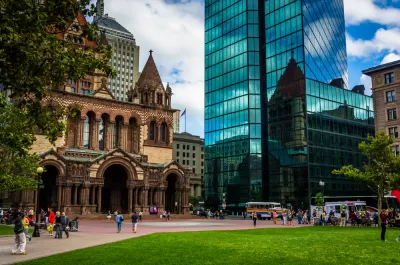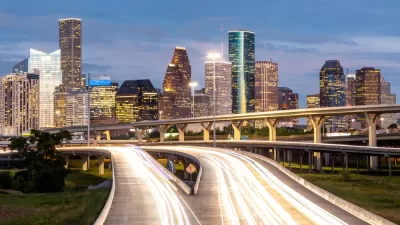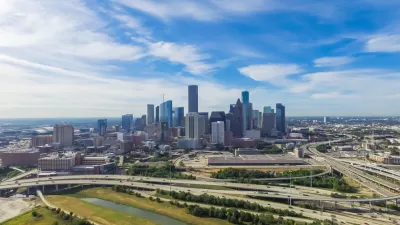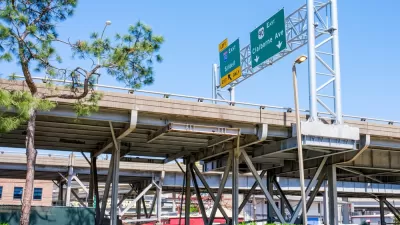Fifty years ago, Governor Francis W. Sargent nixed a proposed expressway and set in motion a transportation future for Boston that would be remarkably different from many other U.S. cities.

In an article for the Boston Globe, Danny McDonald describes the long-lasting impact of a decision made half a century ago by Massachusetts Governor Francis W. Sargent.
As McDonald explains, “Fifty years ago last week, Governor Francis W. Sargent killed the Southwest Expressway, an 8-mile extension of Interstate 95 from Canton to the South End.” This fateful decision “helped Boston maintain its feel, that it preserved an inner core of neighborhoods that the highway would have been irreversibly sliced up.”
According to experts, the decision also helped guide other Boston infrastructure projects, such as the Ted Williams Tunnel.
Indeed, it’s hard to overstate the impact that Sargent’s decision had on modern Greater Boston. Today, part of the proposed highway-that-never-was is the Southwest Corridor Park, a treasured 4-mile greenway that stretches from the Back Bay to Forest Hills in Jamaica Plain. The old elevated Orange Line along Washington Street was torn down and relocated to the former highway corridor, which led to the renewal of neighborhoods in the South End and Jamaica Plain.
Sargent’s decision came after intense opposition from local community activists who feared the impact of the proposed expressway. And while it preserved many Boston neighborhoods, over 500 homes and businesses were demolished to make way for the highway before the project was canceled. But many credit it for setting Boston up for a less car-oriented future than many other American cities.
FULL STORY: Transformative decision a half-century ago to scrap I-95 extension still resonates in Boston today

Planetizen Federal Action Tracker
A weekly monitor of how Trump’s orders and actions are impacting planners and planning in America.

San Francisco's School District Spent $105M To Build Affordable Housing for Teachers — And That's Just the Beginning
SFUSD joins a growing list of school districts using their land holdings to address housing affordability challenges faced by their own employees.

The Tiny, Adorable $7,000 Car Turning Japan Onto EVs
The single seat Mibot charges from a regular plug as quickly as an iPad, and is about half the price of an average EV.

Seattle's Plan for Adopting Driverless Cars
Equity, safety, accessibility and affordability are front of mind as the city prepares for robotaxis and other autonomous vehicles.

As Trump Phases Out FEMA, Is It Time to Flee the Floodplains?
With less federal funding available for disaster relief efforts, the need to relocate at-risk communities is more urgent than ever.

With Protected Lanes, 460% More People Commute by Bike
For those needing more ammo, more data proving what we already knew is here.
Urban Design for Planners 1: Software Tools
This six-course series explores essential urban design concepts using open source software and equips planners with the tools they need to participate fully in the urban design process.
Planning for Universal Design
Learn the tools for implementing Universal Design in planning regulations.
Smith Gee Studio
City of Charlotte
City of Camden Redevelopment Agency
City of Astoria
Transportation Research & Education Center (TREC) at Portland State University
US High Speed Rail Association
City of Camden Redevelopment Agency
Municipality of Princeton (NJ)





























